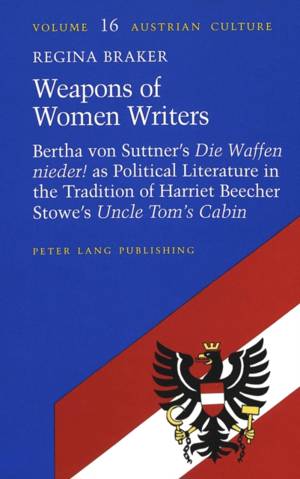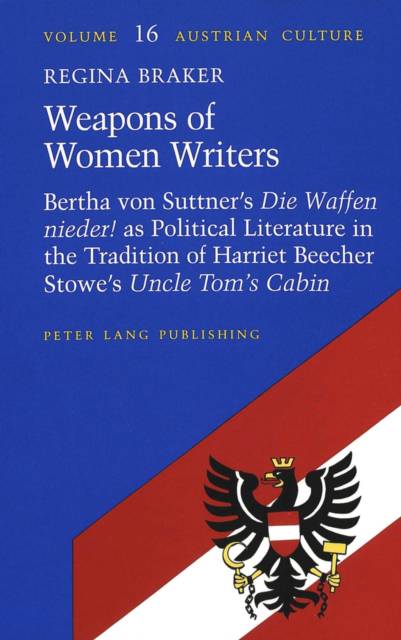
- Afhalen na 1 uur in een winkel met voorraad
- Gratis thuislevering in België vanaf € 30
- Ruim aanbod met 7 miljoen producten
- Afhalen na 1 uur in een winkel met voorraad
- Gratis thuislevering in België vanaf € 30
- Ruim aanbod met 7 miljoen producten
Zoeken
Weapons of Women Writers
Bertha Von Suttner's Die Waffen Nieder¿ as Political Literature in the Tradition of Harriet Beecher Stowe's Uncle Tom's Cabin
Regina Braker
€ 55,95
+ 111 punten
Omschrijving
This study explores the claim that Bertha von Suttner's anti-war novel Die Waffen nieder¿ was the «Uncle Tom's Cabin of the peace movement, » which originated in a comment from a letter to Suttner from Leo Tolstoy. The two novels are compared on the basis of Tolstoy's theory of art, with focus on the didactic purpose and moral message of each novel. While Uncle Tom's Cabin is a work of moral suasion with an unabashed appeal to feeling, the analysis of militarism in Die Waffen nieder¿ differs in scope and form and in its self-conscious use of sentimentality as a convention, even as its critique of social and political institutions is equally substantial.
Specificaties
Betrokkenen
- Auteur(s):
- Uitgeverij:
Inhoud
- Aantal bladzijden:
- 164
- Taal:
- Engels
- Reeks:
- Reeksnummer:
- nr. 16
Eigenschappen
- Productcode (EAN):
- 9780820426266
- Verschijningsdatum:
- 1/12/1995
- Uitvoering:
- Hardcover
- Formaat:
- Genaaid
- Afmetingen:
- 160 mm x 230 mm
- Gewicht:
- 399 g

Alleen bij Standaard Boekhandel
+ 111 punten op je klantenkaart van Standaard Boekhandel
Beoordelingen
We publiceren alleen reviews die voldoen aan de voorwaarden voor reviews. Bekijk onze voorwaarden voor reviews.








